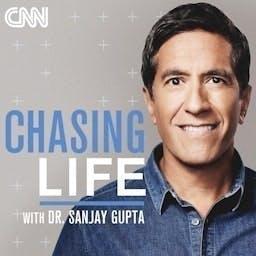10,000 – that’s the magic number of steps often recommended for a healthy lifestyle. With recent research looking into whether that number is an accurate benchmark for health, could the number of steps taken per day have an impact on brain health and, specifically, cognitive decline? That’s precisely what a new study from Harvard Medical School and Mass General Brigham sought to examine, looking at how physical activity, specifically step count, impacted cognitive decline for those living with Alzheimer’s disease. Dr. Bri Breidenbach and Sarah Lose join the podcast to break down the results of this new study, as well as share what current research says about the effect of other kinds of physical activity, such as different intensity exercises, on the brain and Alzheimer’s progression.
Guests: Bri Breidenbach, PhD, scientist, exercise physiologist, Okonkwo Lab, and Sarah Lose, MS, research program manager, exercise physiologist, Okonkwo Lab, UW School of Medicine and Public Health
Show Notes
Read the study, “Physical activity as a modifiable risk factor in preclinical Alzheimer’s disease,” published by the journal Nature Medicine on their website.
Learn more about Dr. Breidenbach and Sarah Lose’s work on the Okonkwo Lab website.
Read “Association of Daily Step Count and Intensity With Incident Dementia in 78 430 Adults Living in the UK,” mentioned by Dr. Breidenbach at 12:01, on JAMA Neurology’s website.
Listen to Sarah Lose’s previous episode, “Building the Brain: Finding the Cognitive Benefits of Physical Activity,” on our website.
Learn more about physical activity and the six pillars of brain health on our website.
Complete the Dementia Matters Feedback Survey to let us know what our show is doing well and how we can improve in the New Year! This anonymous survey is estimated to take about 5 minutes to complete and is open to all.
Connect with us
Find transcripts and more at our website.
Email Dementia Matters: [email protected]
Follow us on Facebook and Twitter.
Subscribe to the Wisconsin Alzheimer’s Disease Research Center’s e-newsletter.
Enjoy Dementia Matters? Consider making a gift to the Dementia Matters fund through the UW Initiative to End Alzheimer’s. All donations go toward outreach and production.




































